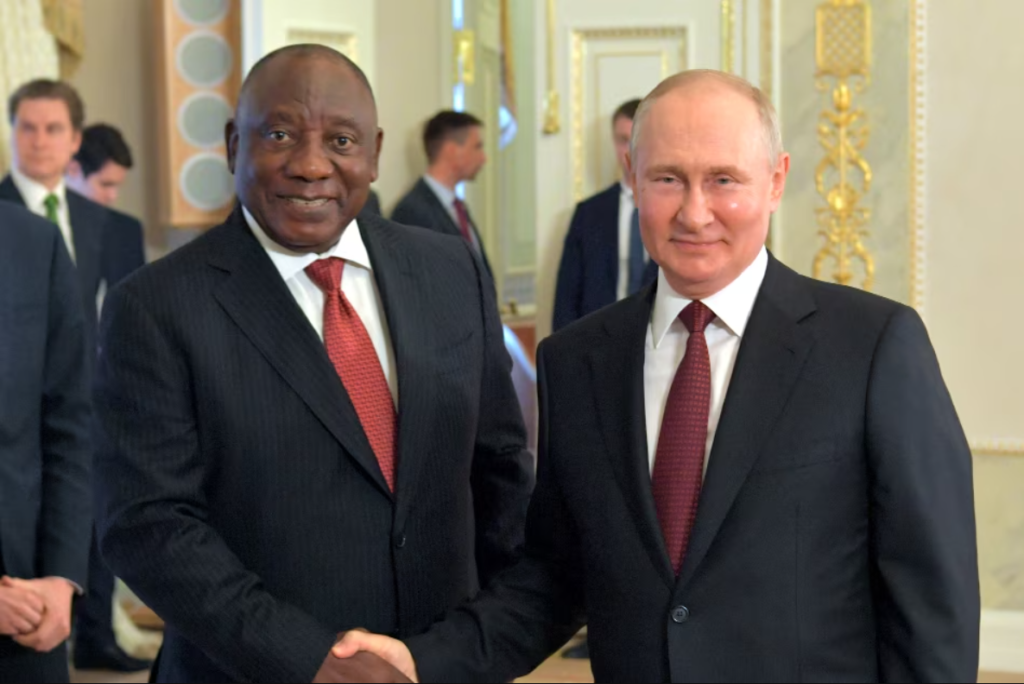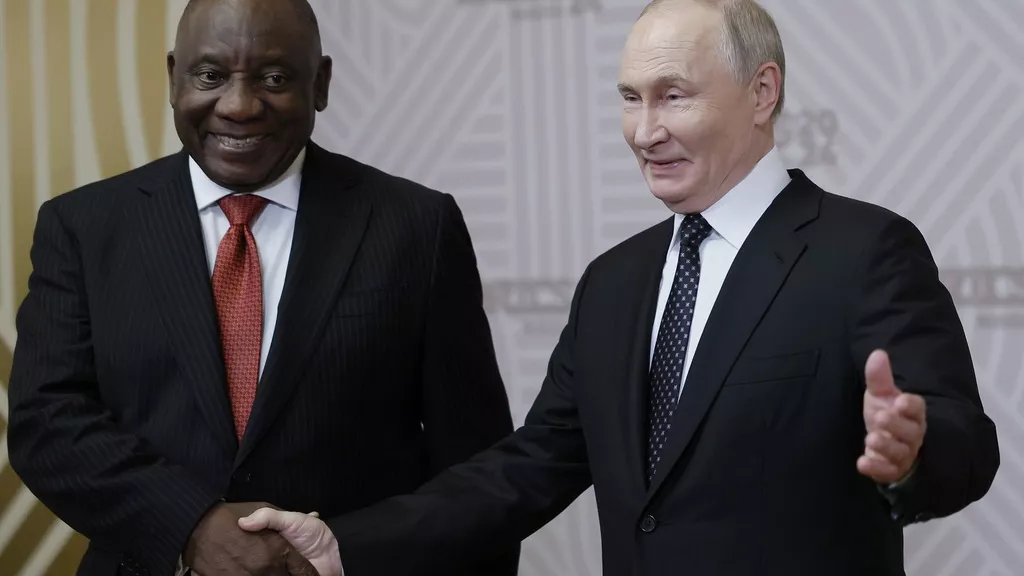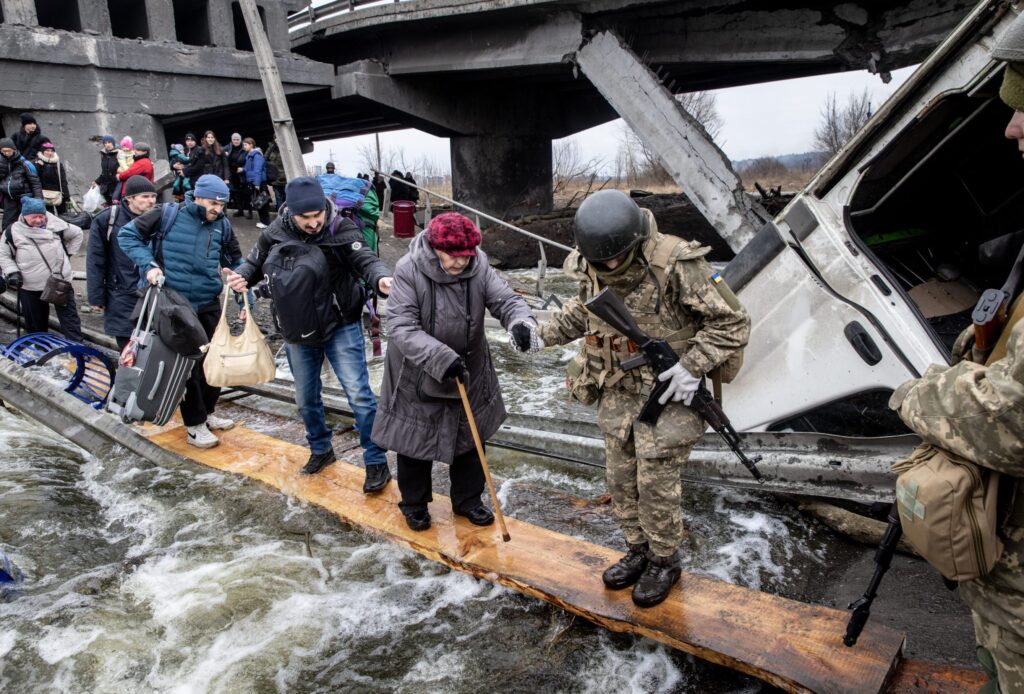Vladimir Putin’s “Full Support” for Africa: New Dawn or Strategic Maneuver?

At the Russia-Africa ministerial conference held in Sochi from November 9-10, Russian President Vladimir Putin made a bold declaration: Russia is committed to providing “full support” to Africa. This statement, aimed at solidifying relationships with approximately 50 African nations, touches on various strategic areas from sustainable development and security to economic collaboration. While hailed as a gesture of goodwill by some, others view it through a more skeptical lens, raising questions about Russia’s intentions and the sustainability of this partnership.

A Renewed Focus on Africa Amid Global Challenges
The Sochi conference was marked by discussions on how Russia could bolster cooperation with African nations in the face of mounting global complexities. Foreign Minister Sergei Lavrov emphasized the progress made between Russia and Africa despite obstacles presented by the so-called “collective West.” This phrase, often used in Russian rhetoric, alludes to Western countries that Russia accuses of imposing their political and economic will on other regions.
This rhetoric resonates deeply with many African leaders who have experienced the long shadow of neocolonialism. The shared narrative of resisting external influence has created a platform where Russia positions itself not as an outsider but as a partner aligned with Africa’s pursuit of self-determination.
ALSO READ: Botswana’s First Lady Sparks Feminism Debate During President Duma Boko’s Inauguration
Economic Partnerships and Technological Ambitions
Economic discussions during the conference revolved around expanding trade partnerships and enhancing technological development. Africa’s abundant natural resources and growing consumer markets present substantial opportunities for Russian companies and state-owned enterprises. The emphasis on digital development and infrastructure projects suggests that Moscow is keen on positioning itself as a major partner in Africa’s technological advancement.

However, experts are cautious about the actual depth of these commitments. While Russia has taken steps to foster bilateral trade and investment, the scale of economic interactions with Africa remains limited compared to the continent’s major trading partners, such as China and the European Union. For Africa, these discussions fuel hope for increased investments that can lead to sustainable development and improved technological capacities.
Military and Security Cooperation
Putin’s statement of support also extended to military and security partnerships, a significant aspect given the rise in terrorism and internal conflicts in various African states. Russia’s role in providing military assistance is not new; it has been active in supplying weapons and military training to several African nations over the past decade. Notably, the presence of Russian paramilitary groups, such as the Wagner Group, has raised concerns about the true nature of Moscow’s involvement in conflict zones.
Despite these concerns, African governments facing security challenges view military partnerships with Russia as a viable option. Unlike some Western nations, Russia often imposes fewer political conditions in exchange for security assistance, appealing to leaders seeking immediate solutions to local crises.
Echoes of the Cold War: Geopolitical Implications
The renewed focus on Africa by Russia draws parallels to Cold War strategies, when the Soviet Union sought to expand its influence in the developing world as a counterbalance to Western powers. Experts have noted that the current geopolitical environment bears some resemblance to that era, with Russia seeking allies to mitigate the effects of international isolation brought on by sanctions and strained relationships with the West.
By aligning with Africa, Russia aims to establish a multipolar world order that challenges the dominance of Western economic and political models. This narrative, which denounces neocolonialism and celebrates sovereign development paths, finds receptive audiences among African leaders looking for alternative alliances that respect their independence.
The Sustainability of Russia-Africa Ties
While the rhetoric from Sochi points toward a long-term partnership, questions remain about whether Russia’s engagement with Africa is sustainable or primarily opportunistic. The economic ties between Russia and Africa, though improving, are not as deep-rooted as those established with other global powers. This raises doubts about Russia’s capacity to maintain a consistent and impactful presence on the continent, particularly when faced with its own economic challenges.
Critics argue that Russia’s outreach may be driven by the need to counteract global isolation and project power rather than by a genuine commitment to supporting Africa’s long-term development. This perception is bolstered by the history of fluctuating interest that often accompanies international partnerships shaped by geopolitical motives.
African Leaders’ Perspective: A Strategic Opportunity
From the perspective of African leaders, Russia’s renewed interest presents an opportunity to diversify partnerships and reduce dependency on traditional allies. The continent’s growing aspirations for economic growth and self-sufficiency align with the promise of a strategic partnership that goes beyond aid and paternalistic models. If Russia can follow through on its commitments with substantial investments and cooperative projects, the relationship could evolve into a mutually beneficial alliance.
For African nations grappling with issues like infrastructure deficits, energy shortages, and security challenges, the promise of collaboration with Russia offers a potential path forward. Yet, it is crucial that such partnerships are entered with clear-eyed expectations and mechanisms to ensure that African interests remain at the forefront.
Conclusion: “Full Support” A Pledge Full of Possibilities and Questions
Vladimir Putin’s affirmation of “full support” for Africa at the Sochi ministerial conference underscores a significant chapter in the evolving relationship between Russia and the continent. While the promise of strengthened ties holds potential benefits, it also brings to light a range of questions regarding intent, sustainability, and the impact on existing geopolitical dynamics.
For Africa, engaging with Russia represents both an opportunity and a challenge. As African nations seek partners that align with their aspirations for development, careful navigation is essential to balance short-term gains with long-term strategic interests. Whether Russia’s involvement will prove to be a sustainable partnership or another chapter in a complex history of foreign engagement remains to be seen. The coming years will be crucial in determining whether Putin’s words translate into genuine progress or remain symbolic gestures in a broader geopolitical game.






Responses